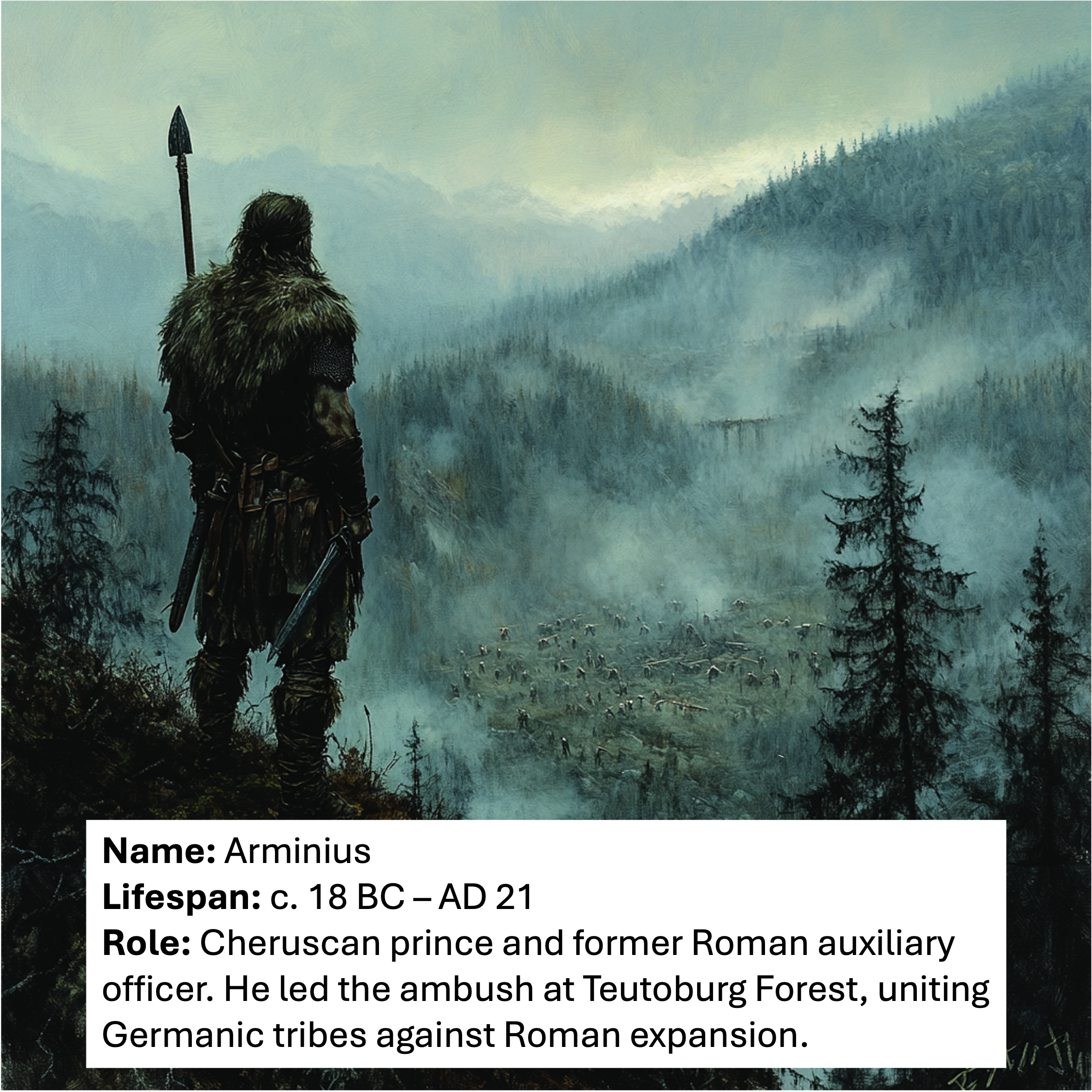
Introduction
Arminius (c. 18 BC – AD 21) was a prince of the Cherusci, a Germanic tribe located east of the Rhine. Raised partly within the Roman Empire, he received Roman military training, citizenship and the rank of eques (knight). Despite these ties, Arminius would later orchestrate one of Rome’s greatest defeats at the Battle of the Teutoburg Forest in 9 AD.
Role in the Events
As a youth, Arminius was taken as a hostage to Rome, part of the Roman practice of educating the sons of tribal leaders to secure loyalty. He served with distinction in the Roman auxiliary forces, gaining experience in Roman military tactics and operations.
By the year 7 AD, Arminius had returned to Germania and was assisting the Roman governor Publius Quinctilius Varus in pacifying and administering the newly organized province east of the Rhine. Publicly loyal, Arminius was privately building a coalition of Germanic tribes opposed to Roman rule. His deep understanding of Roman methods gave him a unique advantage in planning an effective resistance.
In the late summer of 9 AD, Arminius informed Varus of a supposed rebellion in the region of the Bructeri. Trusting his ally, Varus led his legions; XVII, XVIII and XIX — off the secured Roman roads into the dense and unfamiliar Teutoburg Forest. It was there that Arminius and his coalition launched a carefully planned ambush over several days, resulting in the near-total destruction of three Roman legions.
Legacy
After Teutoburg, Arminius became a symbol of resistance to Rome, though his own power among the Germanic tribes was not absolute. Internal rivalries and factional disputes limited his ability to unify Germania under his leadership.
Between 14 and 16 AD, Arminius successfully resisted punitive Roman campaigns led by Germanicus, though he suffered defeats in open battle and was unable to maintain the same level of tribal unity.
In 21 AD, Arminius was assassinated by members of his own family and tribal elites, who feared that his growing ambition would turn him into a king, a title most Germanic tribes rejected.
Roman authors such as Tacitus present a mixed image of Arminius: both as a liberator of his people and as an ambitious, divisive figure. Modern historians view him as a highly capable leader whose actions halted Roman expansion into Germania and changed the frontier policy of the Roman Empire permanently.
